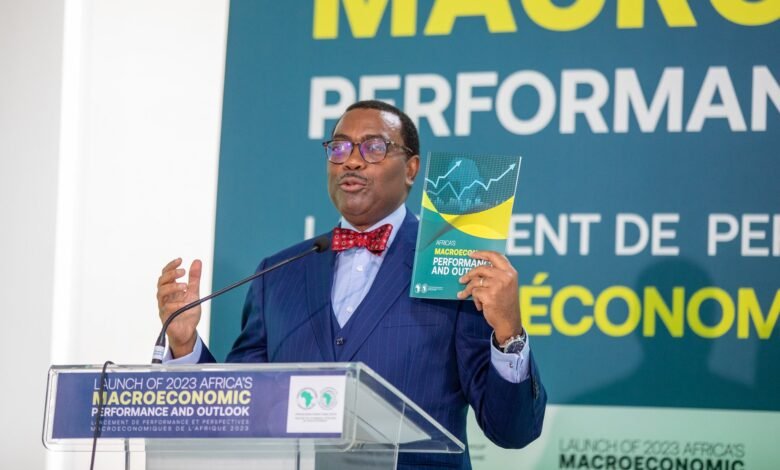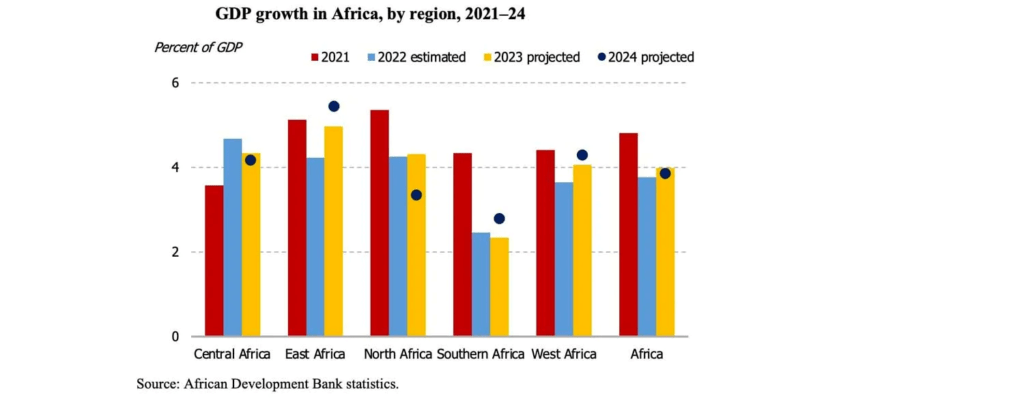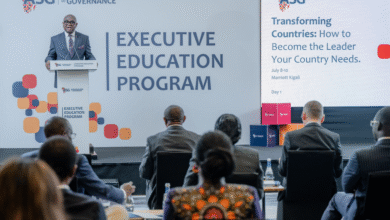AfDB Outlook : persistent challenges and recommendations for Africa
The African Development Bank has revised downward its short and medium-term economic forecasts for Africa, now projecting growth of 3.4% and 3.8% for 2023 and 2024, compared to previous figures of 4.0% and 4.3%. This adjustment is attributed to the lingering effects of COVID-19, geopolitical tensions, climate shocks, global economic slowdown, and budgetary constraints of African governments.

By the Editorial Team
The update on Africa’s macroeconomic performance (MEO) 2023, released on November 29, highlights the persistence of inflationary pressures in Africa, estimating that inflation will average 18.5% and 17.1% in 2023 and 2024, respectively. Professor Kevin Urama, Chief Economist of the African Development Bank, emphasized that global economic challenges continue to influence Africa, jeopardizing macroeconomic gains since the pandemic.
To increase investments in human capital and infrastructure to stimulate productivity
The MEO urges African countries to maintain short-term restrictive monetary policies to contain inflation, supported by budgetary policies promoting economic diversification. In the medium and long term, governments are encouraged to increase investments in human capital and infrastructure to stimulate productivity and foster inclusive and sustainable growth.

The revised inflation rates represent an increase of 3.4% and 7.6% compared to previous projections, primarily fueled by supply shocks in the agricultural sector and stronger imported inflation due to weak local currencies. Current inflationary pressures have raised the cost of living, increasing the risk of a further rise in poverty in Africa.
The slow global economic growth impacts the demand for African exports
The slow global economic growth impacts the demand for African exports, persisting longer than anticipated. Economic slowdown in advanced economies and moderate growth in China exert additional pressure on African countries, especially those dependent on commodity exports to China. The report suggests that enhanced policy support from China could mitigate these risks.
However, the MEO 2023 warns against climate shocks and geopolitical tensions, emphasizing that worsening situations in the Middle East and the prolonged invasion of Ukraine by Russia could further disrupt global trade and foreign investments, exacerbating financial pressures on Africa.
Targeted investments to address supply constraints
To address these challenges, the MEO update recommends coordinated monetary and budgetary policies, supported by a reduction in budget dominance. Targeted investments to address supply constraints, combined with actions to increase domestic resources, are necessary to stimulate economic growth and reduce inflationary pressures in Africa. The MEO, launched in January 2023, complements the annual report on economic outlook in Africa by the African Development Bank.
To read the report







